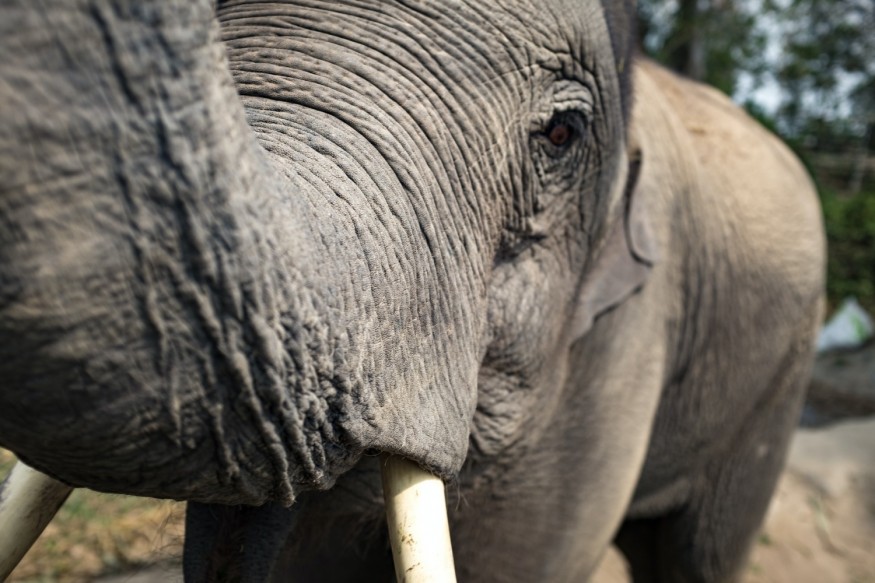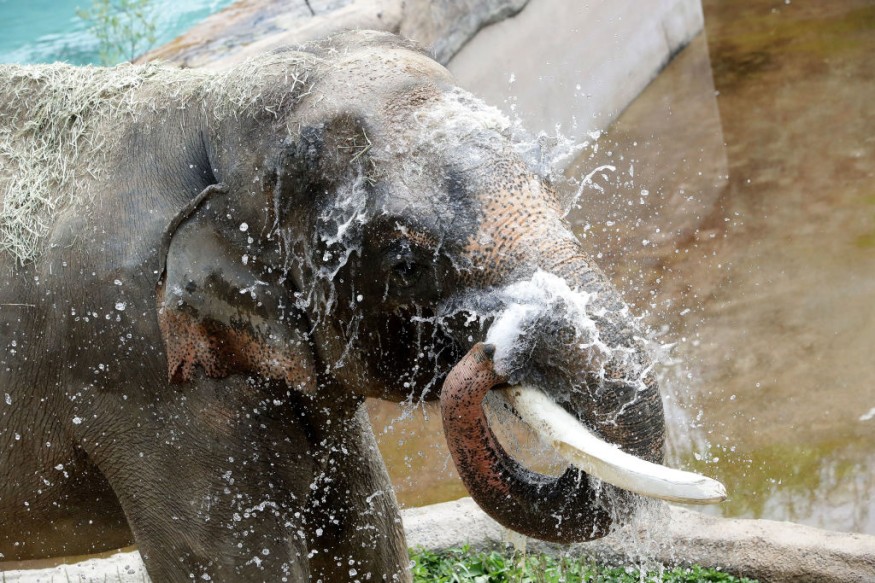Asian elephants were forced by China's drought to assault fields and demolish homes in search of food and water. Ten disasters that occurred between 2021 and 2022 were examined in "Interconnected Disaster Risks 2021/2022" by the United Nations University to determine their effects on international communities.

10,000 have died as a result of the calamities.
Dire Calamity
One such catastrophe was China's "wandering elephants." The research claims that there is "no place left for the wandering giants" due to habitat destruction and drought.
Climate change-related droughts have engulfed many nations throughout the world, including China, which has been dealing with droughts for years. The country is presently experiencing the country's longest heatwave and drought in decades. The impact of previous droughts on elephant-human conflict was examined in the U.N. University report.
Intense Investigation

The investigation focused on a single incident that took place in China in 2020 during the devastating drought that hit Yunnan province. In the Xishuangbanna National Nature Reserve, a herd of 15 elephants started to stray from their home and destroy settlements in search of water and other supplies.
A herd of this size is "financially catastrophic" for farmers, according to the report. The roving elephants caused $1 million worth of damage by destroying crops, breaking into homes, and destroying infrastructure. Authorities in Yunnan believe that crop damage by elephants costs the country over $4 million every year.
Dr. Jack O'Connor, a senior scientist at the U.N.'s Institute for Environment and Human Security, is the lead author of the study. Wild animals "don't normally want to come into areas heavily populated by people, for good cause," University told Newsweek. However, "much like people," they are dealing with a lack of habitat and water shortages.
Climate Change and Drought
Climate change-related drought is a "serious problem" for elephants because they need up to 200 gallons of water a day, according to O'Connor. The worst seasonal drought on record hit Yunnan Province in 2020.
Animals that lack what they need to thrive travel in search of better conditions, just like people, according to O'Connor. "Vegetation production declined considerably around March 2020, coinciding with the acute drought and the beginning of the elephants' migration," O'Connor said.
Although interestingly, the people who live with animals in this way tend to be very respectful of them, the calls for culls and other types of lethal, population control become part of the discourse after attacks. This is understandable, as many of the animals being pushed into contact with humans, like elephants, can be deadly. This is where these kinds of situations put animals in danger.
Elephant Conservation
The Xishuangbanna reserve has seen an increase in its elephant population. Elephant populations in the reserve have increased from 100 to 300 since the 1970s. However, 62 percent of their habitat was lost during this time, mostly as a result of human activities.
Lead author Dr. Zita Sebesvari, Senior Scientist at the U.N., stated that "encounters with wildlife can result in direct physical threat and can pose a significant risk to human health and life, typically when either human enters natural areas such as forests or when wild animals venture into the vicinity of human settlement to feed on crops or livestock." Newsweek was informed by the university institute for environment and human security.
Sebesvari claimed that conflicts between people and wildlife are being caused by climate change everywhere in the world, with instances of this happening in India and Africa. O'Connor claimed that "conservation practices" need to be reviewed to prevent such conflicts.
Related Article : Intense Drought Reveals 600-Year-Old Statue Hidden in Yangtze River
For more similar news, don't forget to follow Nature World News!
© 2025 NatureWorldNews.com All rights reserved. Do not reproduce without permission.





